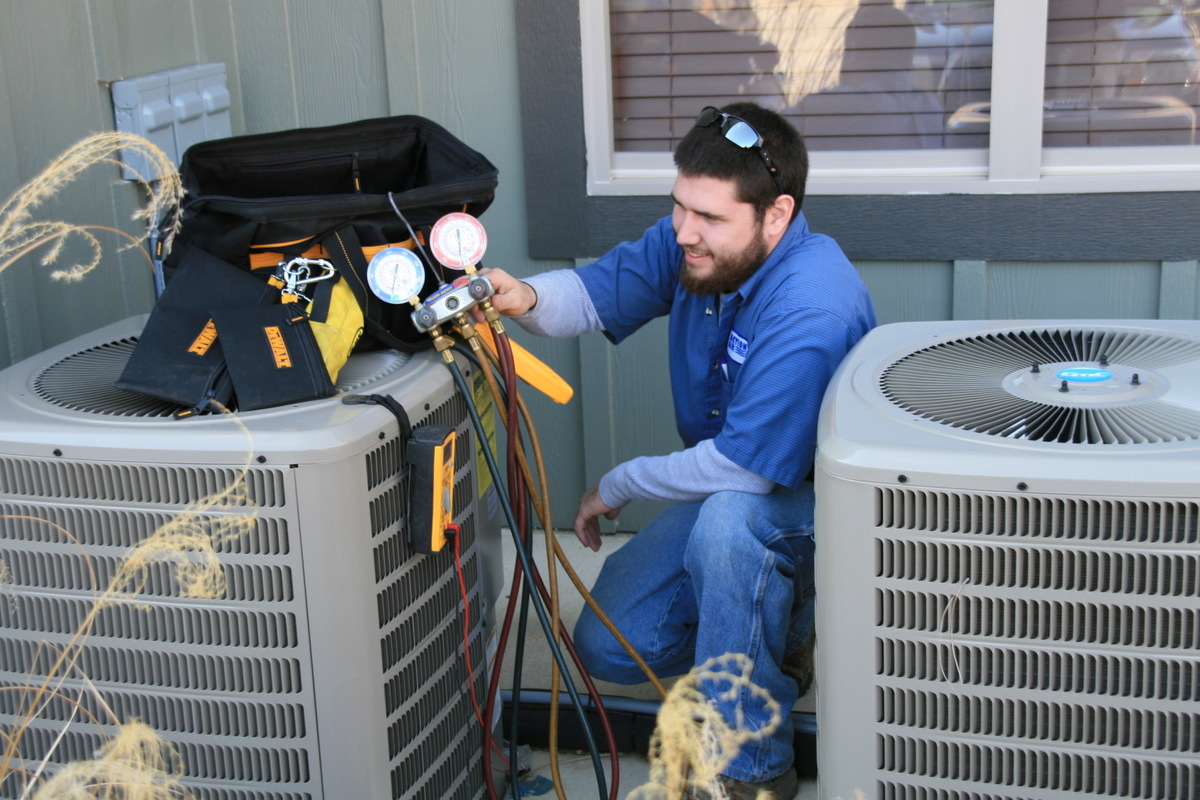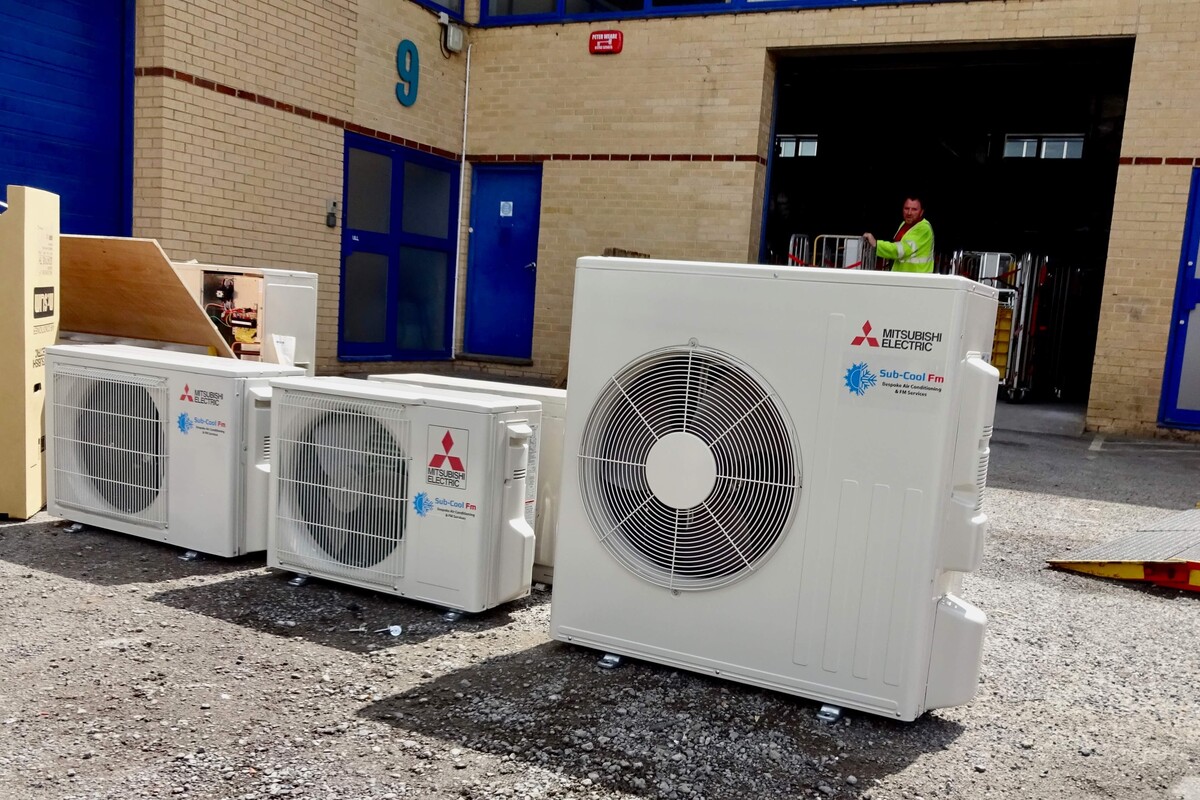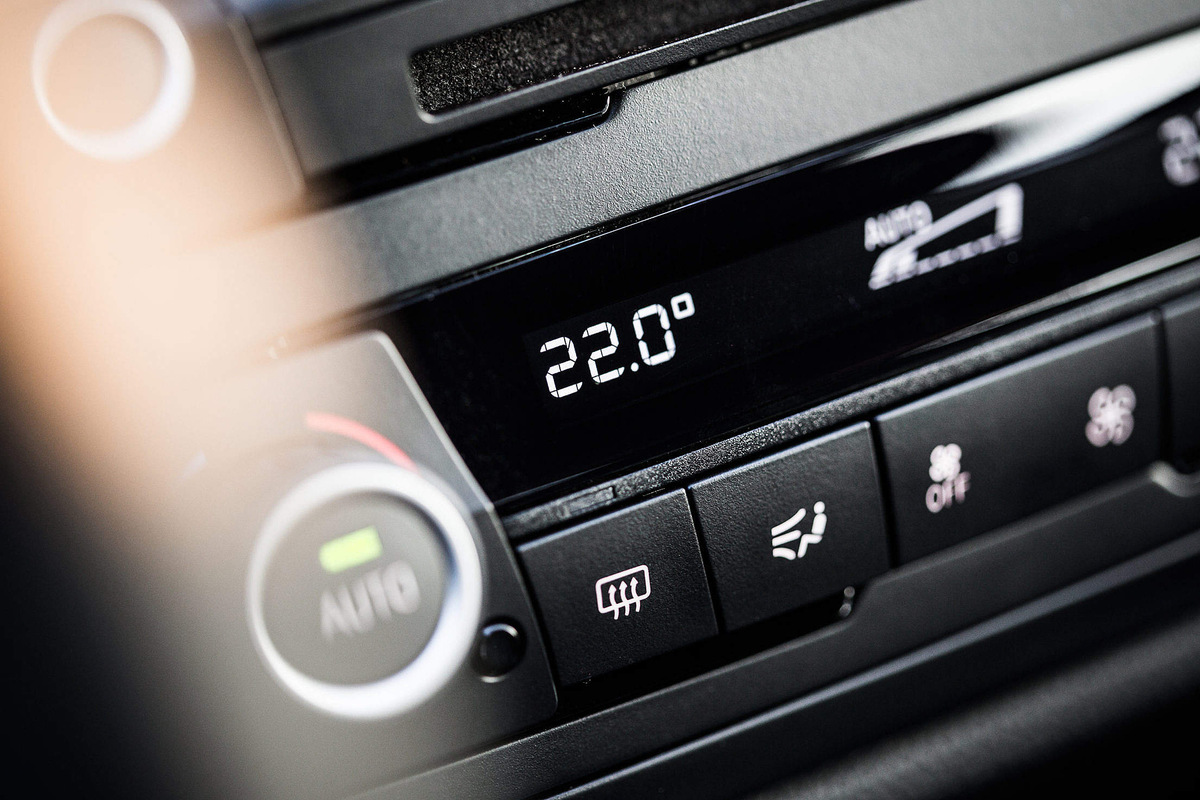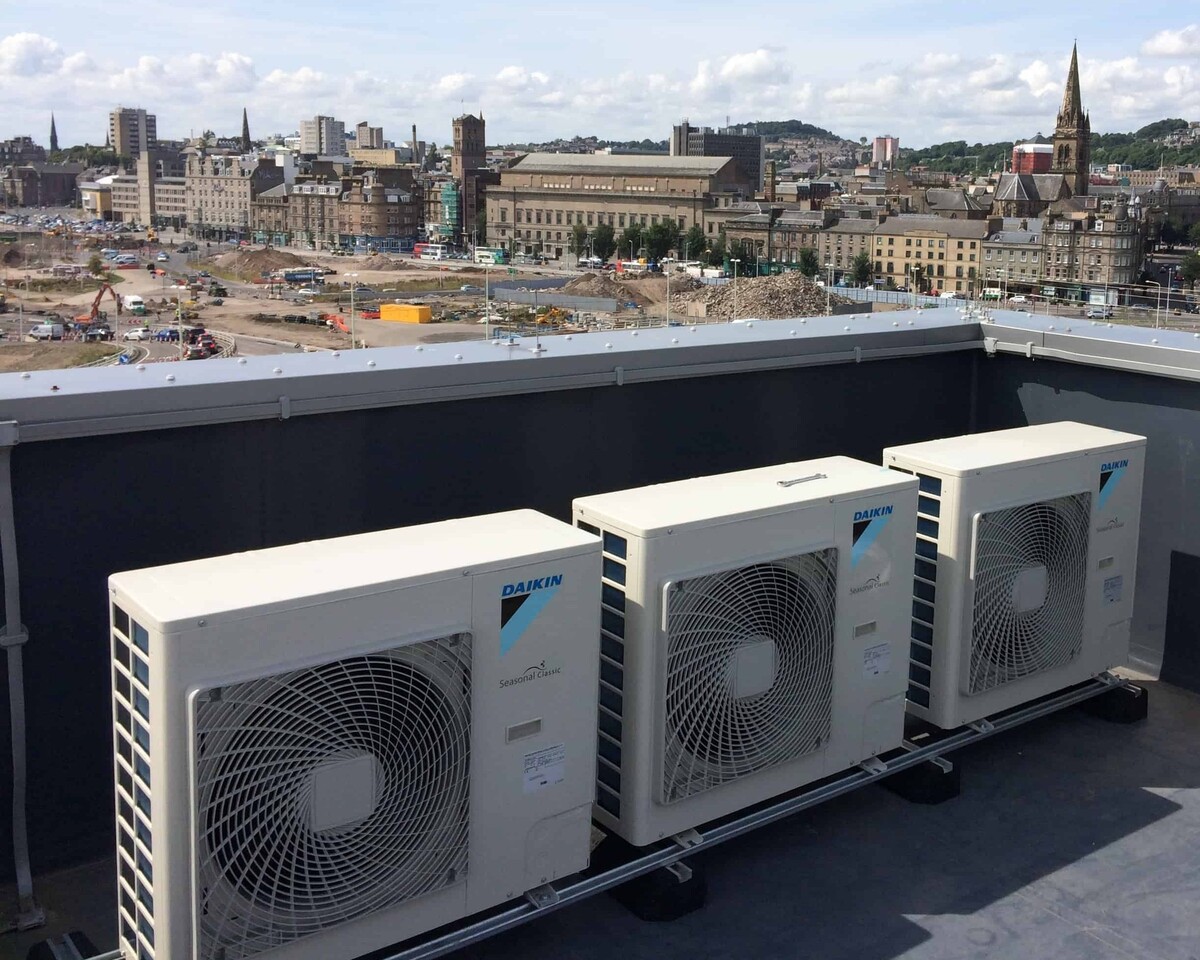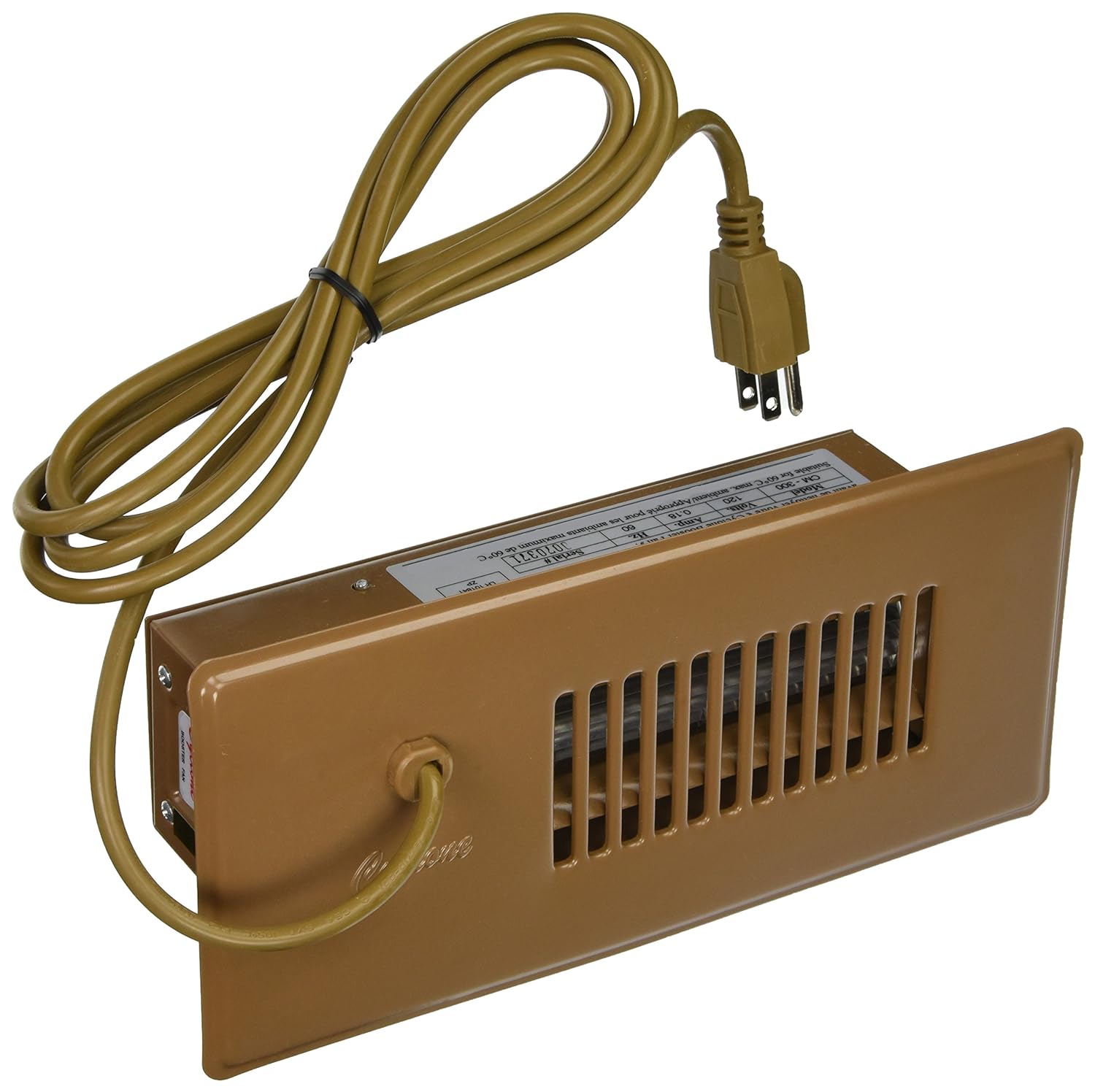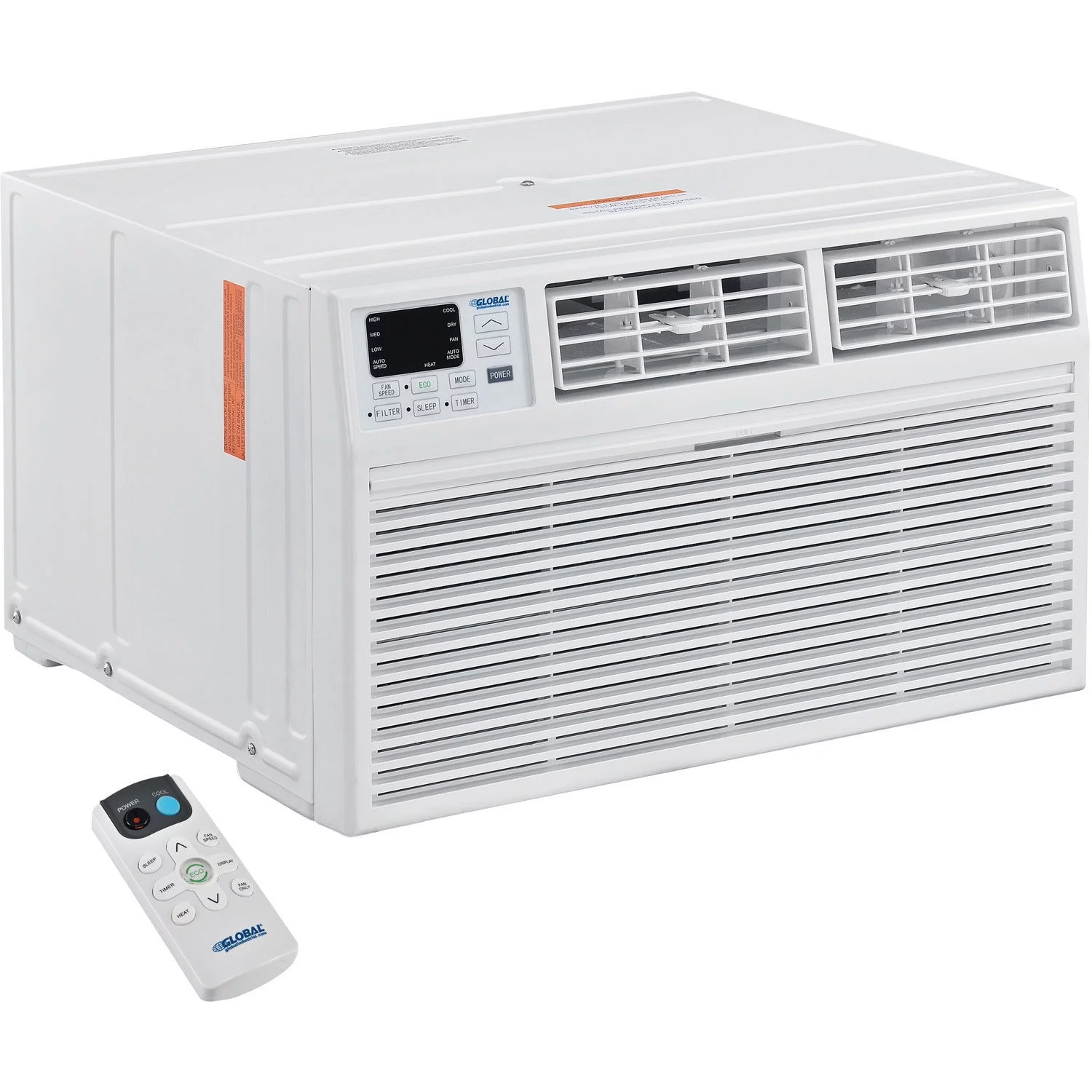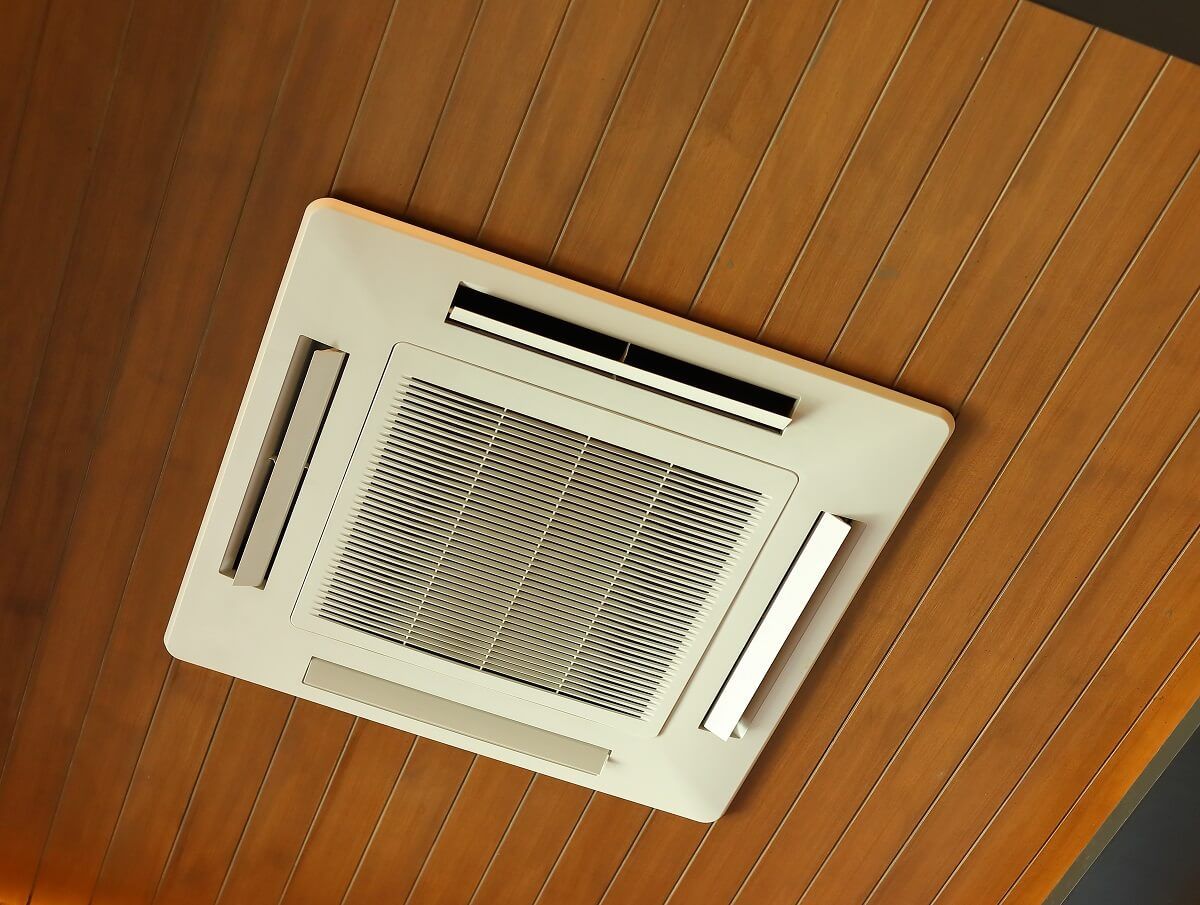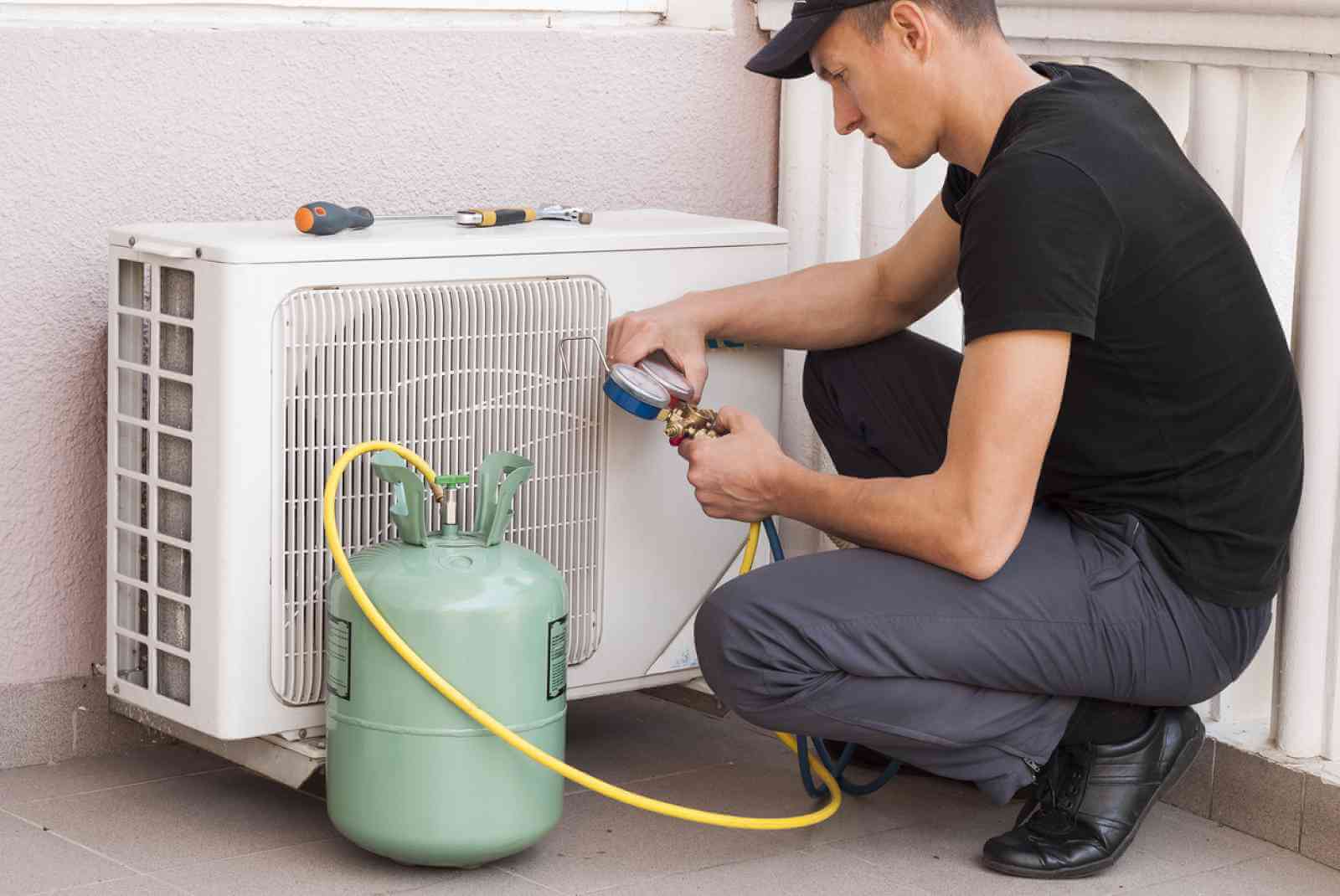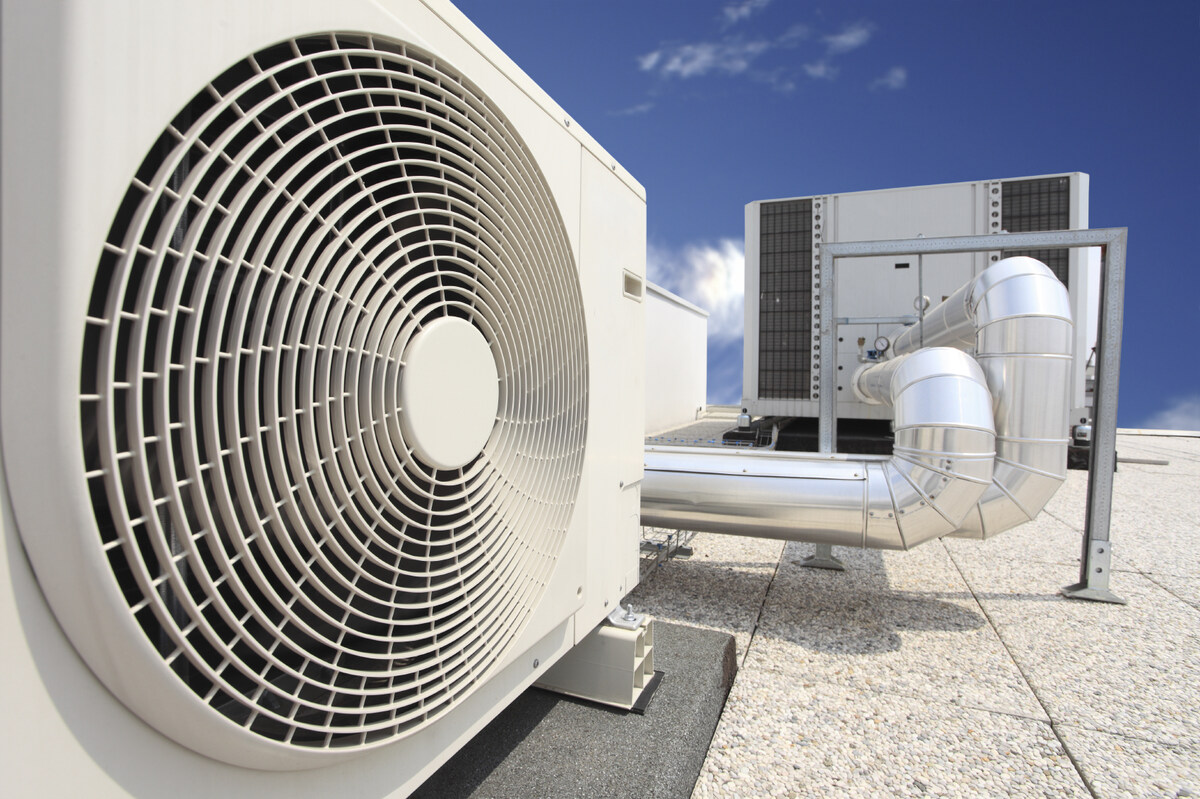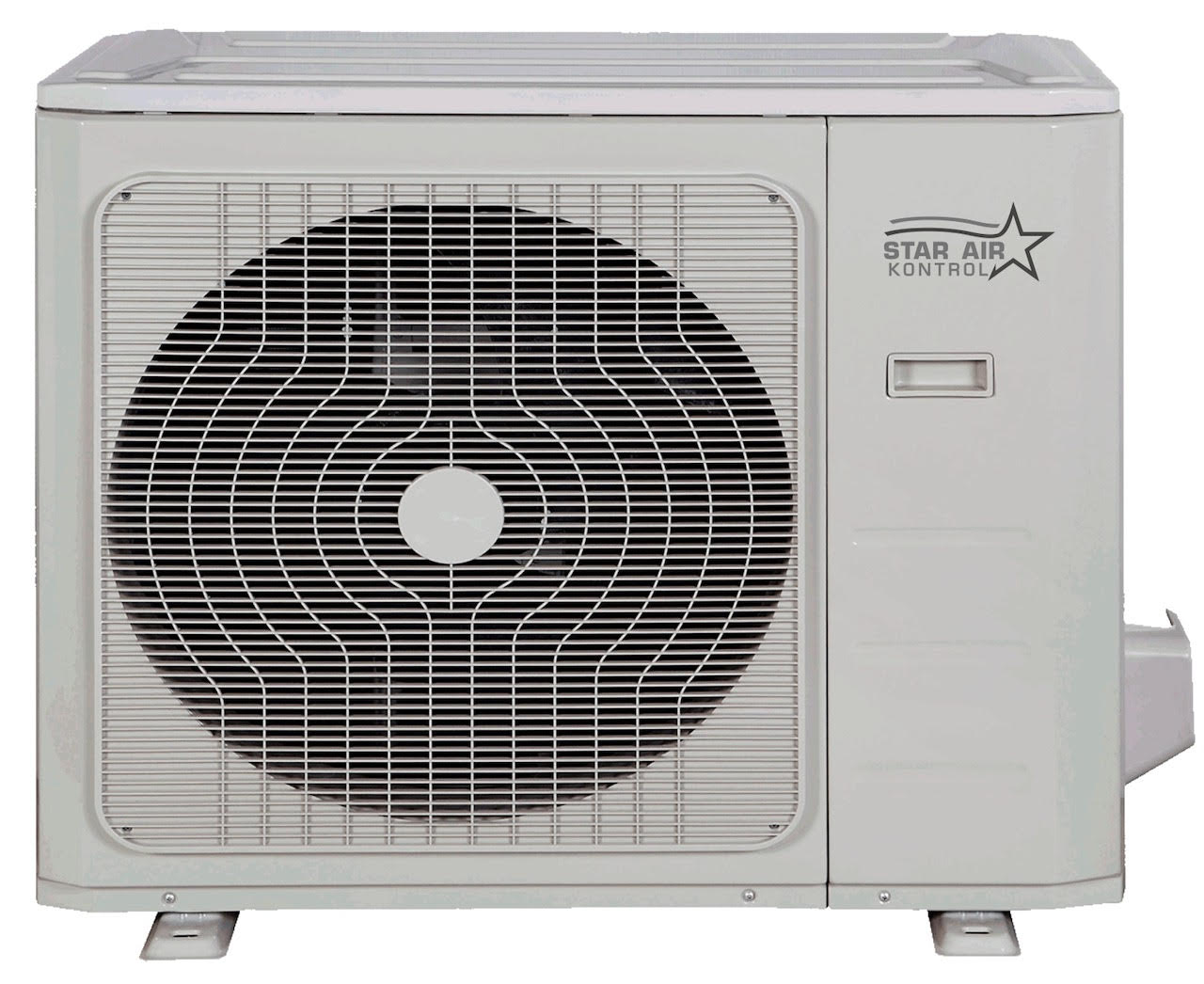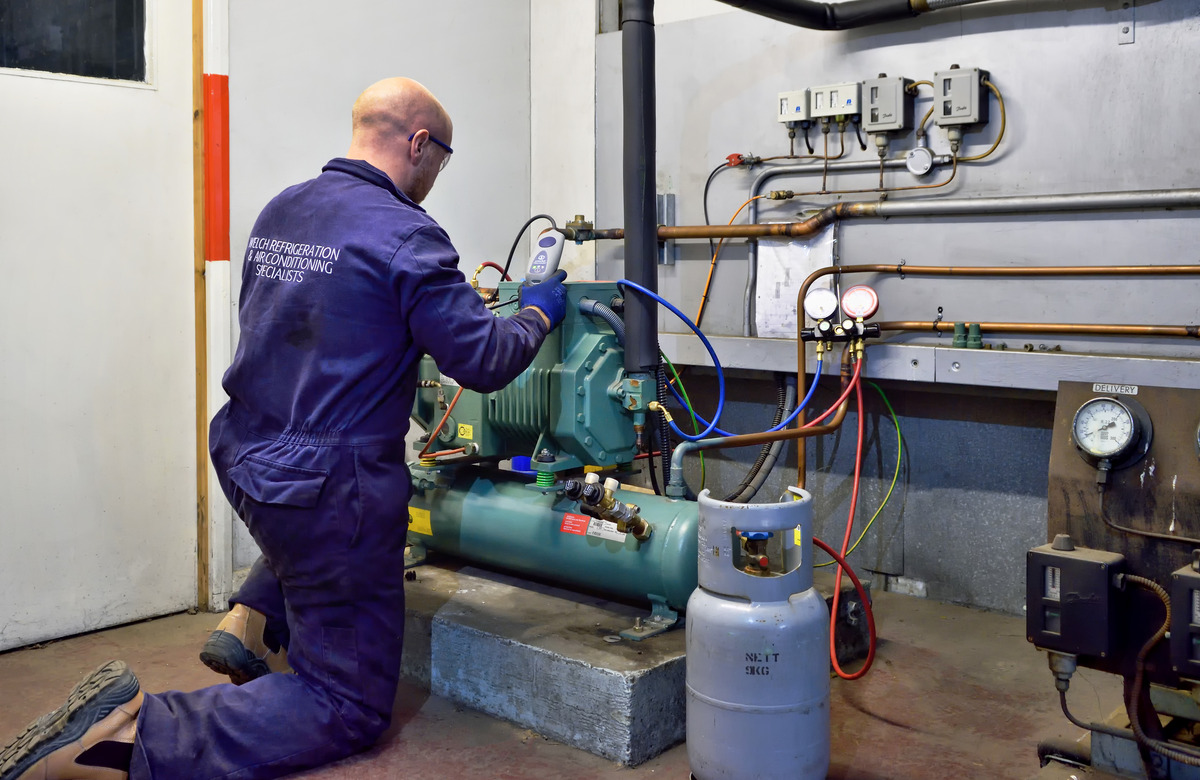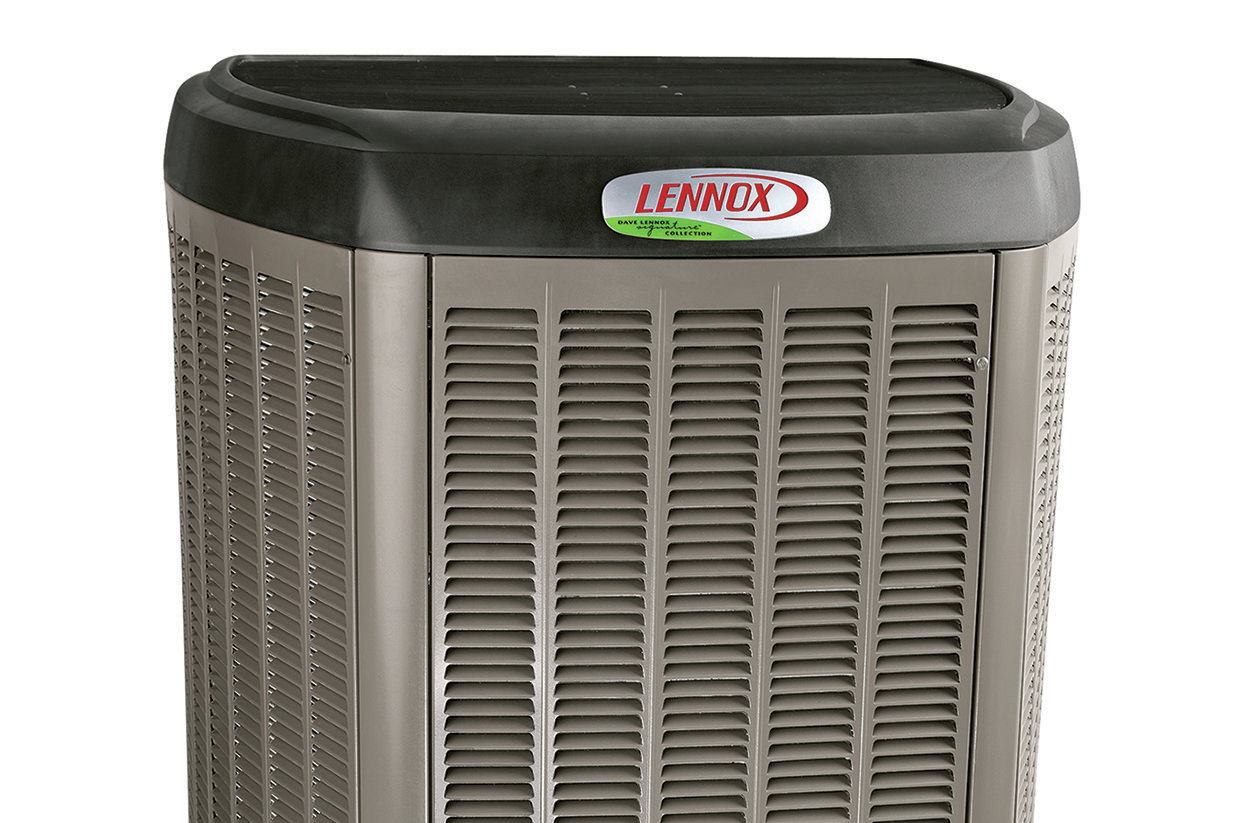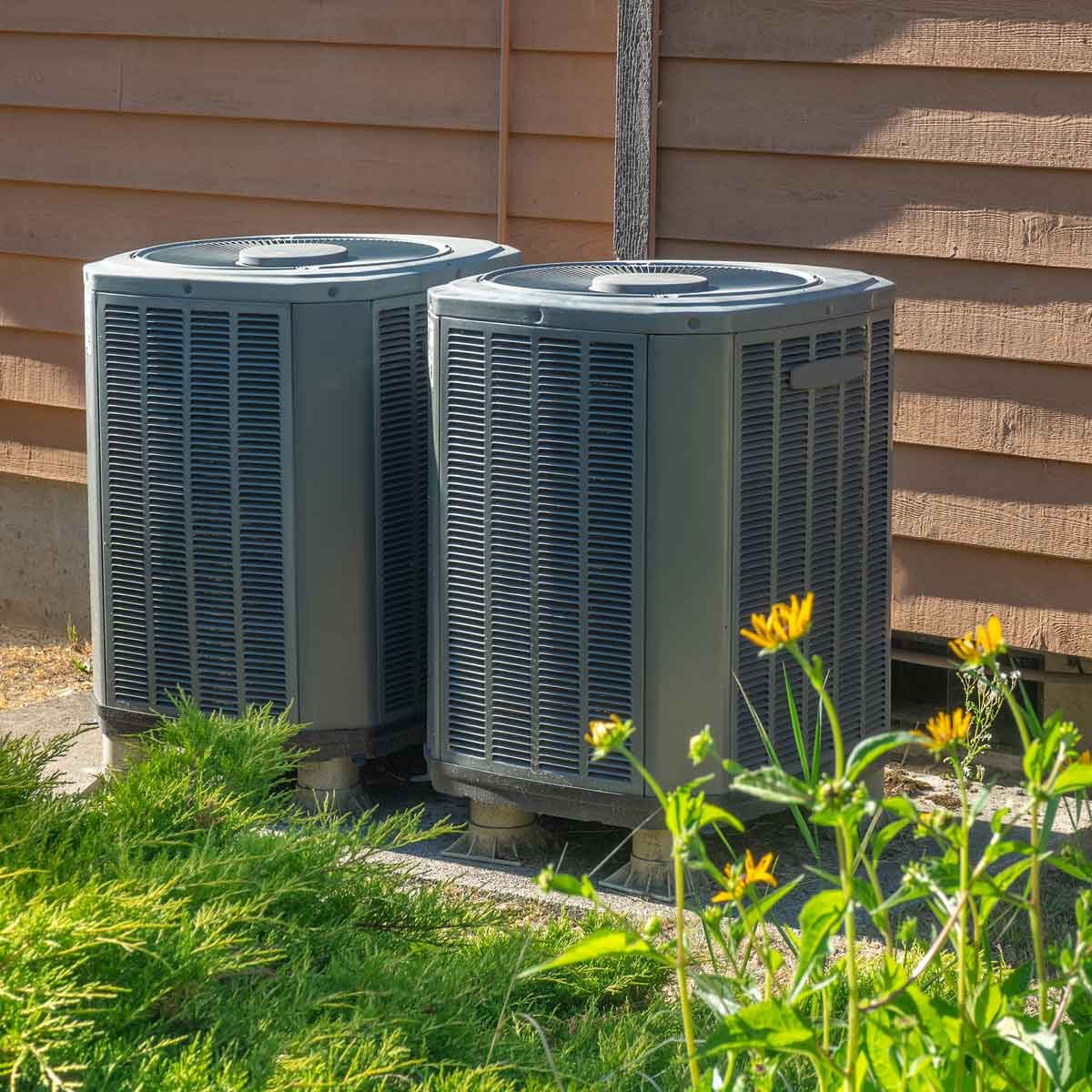Home>Home Maintenance>What Are Tons In Air Conditioning
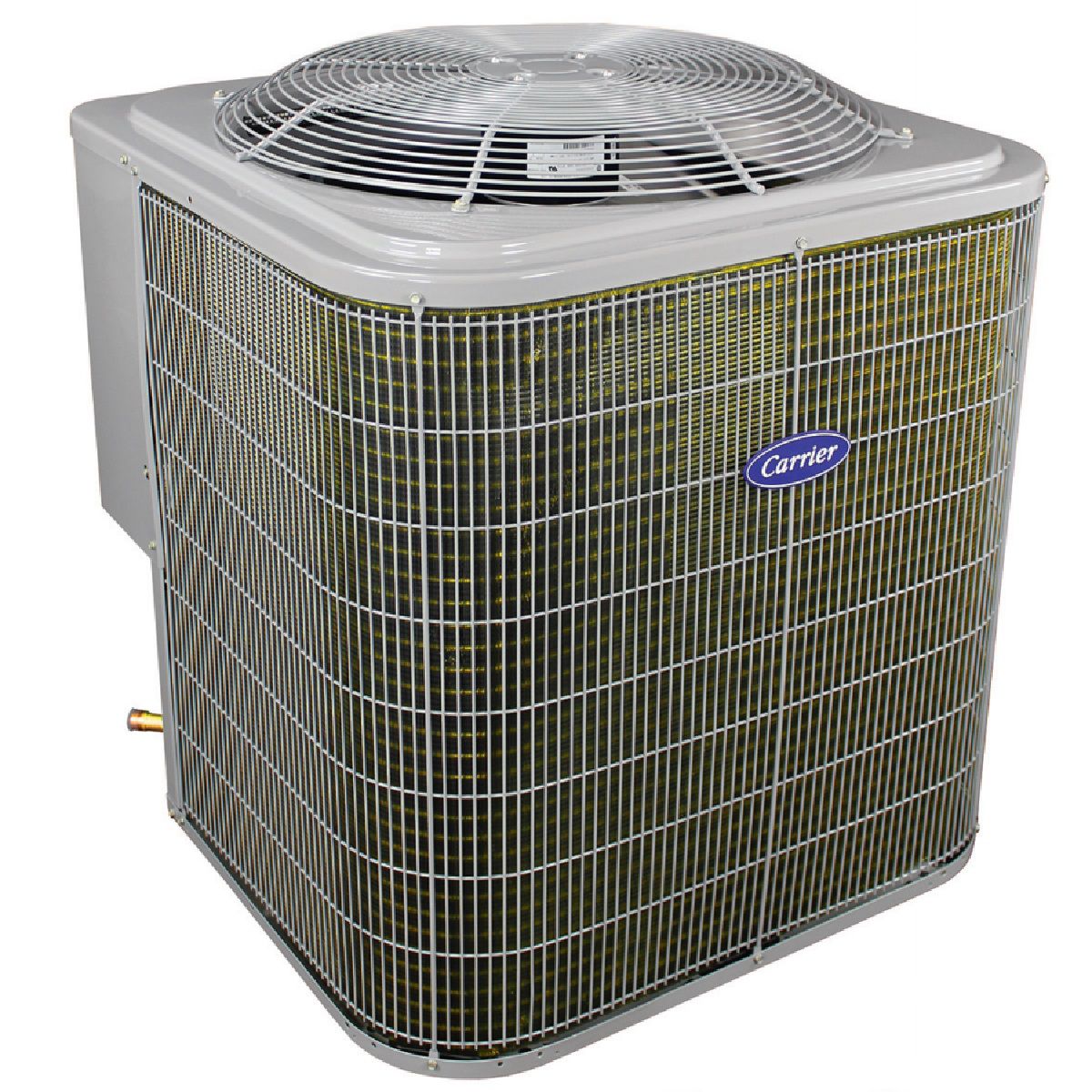

Home Maintenance
What Are Tons In Air Conditioning
Modified: March 6, 2024
Learn about the importance of tons in air conditioning and how it affects your home maintenance. Discover the key factors to consider for optimal cooling efficiency.
(Many of the links in this article redirect to a specific reviewed product. Your purchase of these products through affiliate links helps to generate commission for Storables.com, at no extra cost. Learn more)
Introduction
Welcome to the world of air conditioning! If you’ve ever wondered about the term “tons” in the context of air conditioning, you’re in the right place. Understanding tons in air conditioning is key to ensuring your system runs efficiently and effectively.
When it comes to home maintenance, few things are as essential as maintaining a comfortable indoor environment. One crucial aspect of achieving this comfort is having the right cooling capacity in your air conditioning system. This is where the concept of “tons” comes into play.
While the term “tons” might evoke images of weight or size, in the context of air conditioning, it actually refers to a unit of cooling capacity. It signifies the amount of heat that an air conditioning system can remove from a space within an hour.
Key Takeaways:
- Proper tonnage selection is crucial for efficient cooling, energy savings, and system longevity in air conditioning. It ensures optimal comfort and prevents unnecessary strain on the system.
- Understanding tons in air conditioning helps choose the right cooling capacity for a space, leading to efficient cooling, energy savings, and long-term comfort.
Read more: How Many BTU Is A Ton Of Air Conditioning
Definition of Tons in Air Conditioning
When we talk about “tons” in the context of air conditioning, we are not referring to physical weight. Instead, a “ton” is a unit of measurement that represents the cooling capacity of an air conditioner. It quantifies how much heat an air conditioning system can remove from a given space in a specific amount of time.
The term “tons” originated from the early days of air conditioning, when cooling systems were large and cumbersome, requiring a considerable amount of ice to cool a space adequately. Engineers would refer to the amount of ice needed to cool a room as “tons” because it approximated the cooling power of a ton of ice melting in 24 hours.
In modern air conditioners, a “ton” equates to 12,000 British Thermal Units (BTUs) per hour. A BTU is a measurement of energy and represents the amount of heat required to raise the temperature of one pound of water by one degree Fahrenheit. By defining cooling capacity in BTUs, engineers established an industry-standard unit that can be easily understood and calculated.
So, when you hear that a particular air conditioning system is a “1-ton” unit, it means it has a cooling capacity of 12,000 BTUs per hour. Likewise, a “2-ton” unit has a cooling capacity of 24,000 BTUs per hour, and so on.
Understanding this concept of tonnage in air conditioning systems is vital when selecting the right unit for your space. It allows you to determine the appropriate cooling capacity to effectively cool your home or office and maintain a comfortable environment.
How Tons are Measured in Air Conditioning
The measurement of tons in air conditioning is a standardized process that ensures consistency and accuracy in determining cooling capacity. Tons are measured by calculating the cooling load required to maintain a specific temperature in a given space.
To determine the cooling load, several factors are taken into consideration, such as the size of the space, the insulation of the building, the number of windows and doors, the climate of the area, and the heat generated by appliances and occupants. These factors are used in a calculation known as the Manual J Load Calculation, which provides an estimate of the required cooling capacity in BTUs.
Once the cooling load is determined, it is divided by 12,000 BTUs, which represents one ton of cooling capacity. The result gives us the required tonnage for the air conditioning system. For example, if the calculated cooling load is 36,000 BTUs per hour, it would be divided by 12,000, resulting in a 3-ton air conditioner.
It’s important to note that the tonnage required may vary depending on the specific needs of the space. Factors such as the climate, the number of occupants, and the presence of heat-generating equipment can influence the cooling load and, consequently, the tonnage needed.
When selecting an air conditioning system, it’s crucial to ensure that the tonnage aligns with the cooling load requirements of the space. An undersized unit will struggle to cool the area effectively, resulting in discomfort and increased energy consumption. On the other hand, an oversized unit will cycle on and off frequently, leading to poor humidity control and inefficiency.
Working with a professional HVAC technician can help ensure accurate tonnage measurement based on the specific needs of your space. They will conduct a thorough assessment, taking into account all relevant factors, to determine the ideal tonnage for your air conditioning system.
By accurately measuring tons in air conditioning, you can optimize your system’s performance, improve energy efficiency, and create a comfortable indoor environment all year round.
Understanding Tons and Cooling Capacity
When it comes to air conditioning systems, understanding tons and cooling capacity is essential for maintaining optimal comfort in your space. Tons represent the cooling capacity of an air conditioner, which determines its ability to remove heat from the air effectively.
The cooling capacity is measured in British Thermal Units (BTUs) per hour, and one ton is equal to 12,000 BTUs. This means that a 1-ton air conditioner can remove 12,000 BTUs of heat per hour, a 2-ton unit can remove 24,000 BTUs, and so on.
So, how does understanding tons and cooling capacity impact your air conditioning system? Let’s explore a few key points:
- Matching tonnage to space: Choosing the right tonnage for your space is crucial. Undersized units will struggle to cool the area adequately, leading to discomfort and insufficient temperature control. Conversely, oversized units can cause short cycling, where the system turns on and off frequently, leading to inefficient operation and poor humidity control.
- Energy efficiency: Selecting an air conditioner with the appropriate tonnage helps optimize energy efficiency. An accurately sized unit will operate more efficiently, fully utilizing its cooling capacity without unnecessary strain on the system, resulting in energy savings.
- Humidity control: Proper tonnage selection plays a significant role in humidity control. An oversized unit may cool the air quickly but may not run long enough to effectively remove moisture, leading to a damp and uncomfortable environment. On the other hand, an appropriately sized air conditioner can maintain balanced humidity levels, enhancing comfort.
- Longevity of the system: A system with the correct tonnage is less likely to experience excessive wear and tear. An undersized unit may constantly run at maximum capacity, causing premature wear, while an oversized unit may cycle on and off frequently, leading to unnecessary strain on the system. By selecting the right tonnage, you can promote the longevity and reliability of your air conditioning system.
When determining the appropriate tonnage for your space, it’s important to consider other factors as well, such as insulation, sun exposure, ceiling height, and the number of occupants. Consulting with a professional HVAC technician can help you make an informed decision based on these factors and assess the specific cooling needs of your space.
By understanding tons and cooling capacity, you can select the right air conditioning unit for your needs, ensuring optimal comfort, energy efficiency, and long-term performance. Don’t underestimate the importance of proper tonnage selection in achieving a cool and comfortable indoor environment.
Regular maintenance of your air conditioning system, including cleaning or replacing the air filters, can help prevent the buildup of tons (a unit of cooling capacity) and ensure efficient operation.
Factors Affecting the Tonnage Requirements
When determining the tonnage requirements for an air conditioning system, several factors come into play. These factors help determine the cooling load and, subsequently, the appropriate tonnage for effectively cooling a space. Let’s explore some of the key factors that influence tonnage requirements:
- Size of the Space: The size of the space is one of the primary factors that impact tonnage requirements. Larger spaces require higher cooling capacities to effectively cool the area. A small room may only require a 1-ton unit, while a larger open-concept living area may need a 3- or 4-ton unit.
- Insulation: The insulation of the building plays a crucial role in determining tonnage requirements. Well-insulated spaces retain cool air better, reducing the cooling load and the amount of tonnage needed. In contrast, poorly insulated areas allow more heat to enter, requiring higher tonnage to compensate.
- Climate: The climate of the area also affects tonnage requirements. In hotter climates, where high temperatures are common, the cooling load is higher, necessitating larger tonnage. On the other hand, in milder climates, lower tonnage may be sufficient to meet cooling needs.
- Windows and Doors: The number and type of windows and doors in the space impact tonnage requirements. Windows and doors allow heat to enter or escape, affecting the cooling load. Areas with large windows or poorly insulated doors may require higher tonnage to counteract the heat gain.
- Occupancy and Heat Generation: The number of occupants in the space and the presence of heat-generating appliances, such as computers or kitchen equipment, contribute to the cooling load. A higher occupancy or significant heat-generating equipment requires higher tonnage to effectively cool the area.
- Ceiling Height: The height of the ceiling can affect the tonnage requirements. Higher ceilings create more volume and, therefore, require additional tonnage to cool the space adequately.
It’s important to consider these factors collectively when determining the appropriate tonnage for your air conditioning system. Consulting with a professional HVAC technician who can perform a thorough assessment of your space will help ensure accurate tonnage selection based on these factors.
By taking these factors into account, you can choose an air conditioning system with the right tonnage, providing optimal cooling performance and energy efficiency. Proper tonnage selection will help create a comfortable indoor environment tailored to your specific needs.
Importance of Proper Tonnage Selection
Proper tonnage selection is crucial when it comes to air conditioning systems. Choosing the right tonnage ensures that your system operates efficiently, effectively cools your space, and provides optimal comfort. Let’s explore the importance of proper tonnage selection:
- Efficient Cooling: Selecting the appropriate tonnage ensures that your air conditioning system cools your space efficiently. An undersized unit will struggle to cool the area adequately, leading to discomfort and uneven temperature distribution. On the other hand, an oversized unit may cycle on and off frequently, resulting in poor humidity control and energy inefficiency. Proper tonnage selection enables the system to operate at its optimal capacity, effectively removing heat from the air and maintaining a comfortable environment.
- Energy Efficiency: A properly sized air conditioning system operates more efficiently, helping to reduce energy consumption and lower utility bills. An undersized unit may continually run at maximum capacity, consuming excessive energy to try to meet the cooling demand. Conversely, an oversized unit will frequently cycle on and off, wasting energy. By selecting the right tonnage, you can maximize energy efficiency and save on electricity costs.
- Humidity Control: Humidity control is a crucial aspect of indoor comfort. An appropriately sized air conditioning system helps maintain balanced humidity levels. An undersized unit may not run long enough to effectively remove moisture from the air, leading to a stuffy and humid environment. Conversely, an oversized unit may cool the air quickly but not run long enough to dehumidify, leaving the space feeling damp. Proper tonnage selection ensures optimal humidity control, enhancing overall comfort.
- Longevity of the System: Overworking an air conditioning system can lead to premature wear and tear, decreasing its lifespan. An undersized unit may run continuously, straining the components and reducing their longevity. In contrast, an oversized unit that frequently turns on and off increases wear on the system. By selecting the right tonnage, you can prevent unnecessary strain on the system and extend its lifespan, ultimately saving on repair and replacement costs.
- Optimal Comfort: Ultimately, the goal of an air conditioning system is to provide optimal comfort in your space. Proper tonnage selection ensures that the system effectively cools the area, maintains desired temperature levels, and keeps occupants comfortable. A system with the right tonnage ensures a consistent and pleasant indoor environment, regardless of external temperature fluctuations.
Working with a professional HVAC technician is invaluable when it comes to selecting the right tonnage for your air conditioning system. They will assess your space, consider factors such as size, insulation, climate, and occupancy, and provide expert guidance on the optimal tonnage for your specific needs.
By prioritizing proper tonnage selection, you can optimize the performance, energy efficiency, and longevity of your air conditioning system, creating a comfortable and enjoyable indoor environment for years to come.
Conclusion
Understanding tons in air conditioning is essential for maintaining a comfortable indoor environment. Tons represent the cooling capacity of an air conditioning system, quantifying the amount of heat that can be removed from a space in a given time frame. By selecting the appropriate tonnage for your air conditioning system, you can ensure optimal performance, energy efficiency, and comfort.
Proper tonnage selection involves considering various factors such as the size of the space, insulation, climate, windows and doors, occupancy, and ceiling height. Consulting with a professional HVAC technician is highly recommended to assess your specific needs and accurately determine the tonnage requirements for your space.
The importance of proper tonnage selection cannot be overstated. It enables efficient cooling, ensuring that the air conditioning system effectively removes heat from the air and maintains a comfortable temperature. It promotes energy efficiency, minimizing energy consumption and reducing utility costs. It also contributes to proper humidity control, preventing a damp or overly dry indoor environment. Additionally, selecting the right tonnage helps extend the longevity of the system, avoiding unnecessary strain and potential repairs.
By prioritizing proper tonnage selection, you can create an optimal indoor environment that keeps you and your loved ones comfortable throughout the year. Whether it’s a small residential space or a large commercial building, choosing the right tonnage is crucial for achieving the desired level of cooling and maintaining energy efficiency.
Remember to consult with an HVAC professional to accurately determine the tonnage requirements for your specific space. They will ensure that your air conditioning system is properly sized and configured to provide efficient cooling, maximize comfort, and enhance energy savings.
So, when it comes to selecting an air conditioning system, don’t overlook the importance of proper tonnage selection. It’s a key factor in enjoying a cool and comfortable indoor environment for years to come.
Frequently Asked Questions about What Are Tons In Air Conditioning
Was this page helpful?
At Storables.com, we guarantee accurate and reliable information. Our content, validated by Expert Board Contributors, is crafted following stringent Editorial Policies. We're committed to providing you with well-researched, expert-backed insights for all your informational needs.
